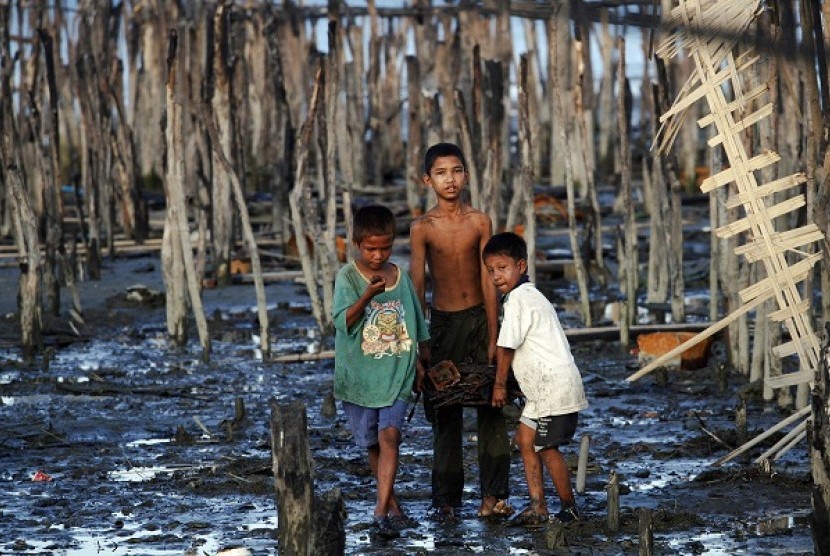Called Bengalis
REPUBLIKA.CO.ID, PAIK THAY - Rohingya have lived for generations in Rakhine State, where postcard-perfect valleys sweep down to a mangrove-fringed coastline. But Rakhines and other Burmese view them as illegal immigrants from neighboring Bangladesh who deserve neither rights nor sympathy. Rakhines reject the term "Rohingya" as a modern invention, referring to them instead as "Bengali" or "kalar" - a pejorative Burmese word for Muslims or people of South Asian descent.
October's attacks marked an acceleration of violence against the Rohingya. An earlier wave of unrest in June killed at least 80 people. Afterwards, the Rakhine State government imposed a policy of segregating Muslim communities from Buddhists across an area roughly the size of Switzerland.
More than 97 percent of the 36,394 people who have fled the latest violence are Muslims, according to official statistics. Many now live in camps, joining 75,000 mostly Rohingya displaced in June. Others have set sail for Bangladesh, Thailand and Malaysia on rickety boats, two of which have reportedly capsized, with as many as 150 people believed drowned.
There is no evidence to suggest the Buddhist-dominated national government endorsed the violence. But it appears to have anticipated trouble, stationing troops between Muslim and Buddhist villages a month ago, following rumors of attacks.
"This is racism," said Shwe Hle Maung, 43, chief of Paik Thay, where impoverished Muslim families cram into thatched homes without electricity. "The government can resolve this if it wants to in five minutes. But they are doing nothing."
The Rakhine violence is also a test for Nobel Peace Prize-winner Aung San Suu Kyi, now opposition leader in parliament, whose studied neutrality has failed to defuse tensions and risks undermining her image as a unifying moral force. Suu Kyi, a devout Buddhist, says she refuses to take sides.
At stake is the stability of one of Myanmar's most commercially strategic regions and the gold-rush of foreign investment that has come with an easing of Western economic sanctions. The United States and the European Union have suspended, not lifted, sanctions, and have made resolving ethnic conflicts a precondition for further rewards.
In Rakhine State, however, the conflict has spread, most recently to areas where Muslims have long lived peacefully with Buddhists, according to a reconstruction of the violence from October 21 through October 25.
In Paik Thay, the Buddhist Rakhine mobs hurled Molotov cocktails at wooden huts, while Tun Naing and his neighbors fled. Muhammad Amin, 62, said he was beaten with a metal pipe until his skull cracked. The initial violence ended after soldiers fired their guns into the air and police arrested a Rakhine.
The bloodshed was only beginning.



